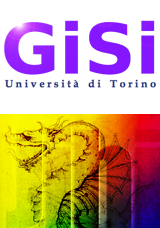JIHI 6(2017) n. 12
Editorial: Homage to Donald Winch. Philosophy and Geography
Manuela Albertone - Enrico Pasini
 The “Notes” section of the present issue of the Journal of Interdisciplinary History of Ideas is meant to pay tribute to Donald Winch, who passed away this year at the age of 82. He was Professor Emeritus of Intellectual History at the University of Sussex, where he had taught History of Economic Thought from 1969 to 2000. Donald Winch, together with a group of scholars at the University of Sussex, primarily Stefan Collini and John Barrow, has been a pioneer of Intellectual history, an interdisciplinary approach that innovated the history of ideas as a form of knowledge of social phenomena, aiming at the reconstruction, in John Barrow's words, of “what people in the past meant by the things they said and what these things ‘meant’ to them”.
The “Notes” section of the present issue of the Journal of Interdisciplinary History of Ideas is meant to pay tribute to Donald Winch, who passed away this year at the age of 82. He was Professor Emeritus of Intellectual History at the University of Sussex, where he had taught History of Economic Thought from 1969 to 2000. Donald Winch, together with a group of scholars at the University of Sussex, primarily Stefan Collini and John Barrow, has been a pioneer of Intellectual history, an interdisciplinary approach that innovated the history of ideas as a form of knowledge of social phenomena, aiming at the reconstruction, in John Barrow's words, of “what people in the past meant by the things they said and what these things ‘meant’ to them”.
It is an honor for us to be able to present our readers with an unpublished conference that Winch gave in 2006 at the Ecole Normale Supérieure de Cachan, titled Intellectual History and the History of Economic Thought: A Personal Account. It is the intellectual self-presentation of a scholar who was trained in economics, but soon overcame disciplinary boundaries, the publication of which has seemed to us an apt way both to remember and to pay homage to one of the most inspirational intellectual historians of our time. We are deeply grateful to Richard Whatmore for proposing the article to us and for writing an introductory piece. Whatmore, who is currently Director of the Institute of Intellectual History at the University of St. Andrews, was Donald Winch’s pupil at Sussex and Professor of Intellectual History and History of Political Thought at the University of Sussex until 2013.
The rest of this issue is mainly dedicated to the welcome results of our call on Philosophy and Geography. We are thankful to the guest editors of the special issue, Simone Mammola and Ernesto Sferrazza Papa, and in particular to the latter, who has crafted a brilliant Introduction to the collection.
As promised, the following issue will be essentially devoted to the political, economic and cultural heritage of the Reformation in present-day Europe, seen from the point of view of intellectual history. To celebrate the 500th anniversary of the Reformation, an international workshop on ‘Luther’s modernity’ took place in Turin in 2017, at the Department of Historical Studies, in collaboration with the University of Neuchâtel and the CEDRE (Centre européen d’études républicaines). Selected papers from the workshop will appear in our June 2018 issue.
 The “Notes” section of the present issue of the Journal of Interdisciplinary History of Ideas is meant to pay tribute to Donald Winch, who passed away this year at the age of 82. He was Professor Emeritus of Intellectual History at the University of Sussex, where he had taught History of Economic Thought from 1969 to 2000. Donald Winch, together with a group of scholars at the University of Sussex, primarily Stefan Collini and John Barrow, has been a pioneer of Intellectual history, an interdisciplinary approach that innovated the history of ideas as a form of knowledge of social phenomena, aiming at the reconstruction, in John Barrow's words, of “what people in the past meant by the things they said and what these things ‘meant’ to them”.
The “Notes” section of the present issue of the Journal of Interdisciplinary History of Ideas is meant to pay tribute to Donald Winch, who passed away this year at the age of 82. He was Professor Emeritus of Intellectual History at the University of Sussex, where he had taught History of Economic Thought from 1969 to 2000. Donald Winch, together with a group of scholars at the University of Sussex, primarily Stefan Collini and John Barrow, has been a pioneer of Intellectual history, an interdisciplinary approach that innovated the history of ideas as a form of knowledge of social phenomena, aiming at the reconstruction, in John Barrow's words, of “what people in the past meant by the things they said and what these things ‘meant’ to them”.